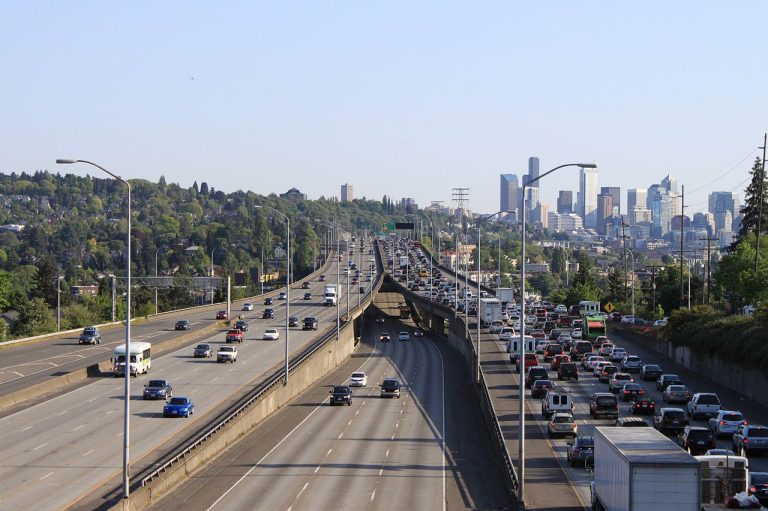Published on March 17, 2022

In many ways, it feels like pre-pandemic commutes are back.
Though the peaks have pretty much returned to normal, the commutes don’t last as long in the Seattle metro area. But between commutes? There’s actually more traffic.
Those were some of the findings in an ongoing study of commute patterns. It’s a study that began in 2021 when we first thought the pandemic might be over, after Washingtonians were told they could drop masks in May, and before the onslaught of the delta variant.
Now, work by Dr. Jeff Ban, professor of Civil and Environmental Engineering at the University of Washington, continues as the omicron wave recedes.
“For some length of time,” Dr. Ban said when asked if traffic will remain down somewhat.
When it comes to transit, he said that’s likely to remain in real trouble.
The work is carried out by the University of Washington’s Mobility Innovation Center in partnership with King County Metro, the Puget Sound Regional Council, and support from Challenge Seattle.
Much of the data was gleaned in rider surveys from Metro and Community Transit of Snohomish County.
Needless to say, much of this commute study focuses on transit’s struggles as passengers have sought to avoid potential exposure on busses and trains.
The wildcard in all of this those who work from home.
The study outlines four scenarios. The most optimistic is that transit riders would rebound to 2018 levels and 30% of commuters would work from home. On the pessimistic side, 25% of transit riders would commute to work, but switch to driving alone, and 50% of one-time commuters would continue to work from home.
The neutral scenario has 15% of transit riders driving alone in their cars and 40% of workers teleworking from home.
While working from home certainly feels like the new normal, it was two years ago this month when the COVID-19 pandemic had most of us packing up our offices.
Dr. Ban’s not sure working from home or hybrid-work splitting time between a few days at home and a few days at the office will ultimately stick.
“I don’t know if the businesses would really like to continue this forever, or it’s a short-term solution,” he said, adding it could be five to 10 years before we get back to a commuting normal.
Continue reading at King5 News.
Originally written by Glenn Farley for King5 News.